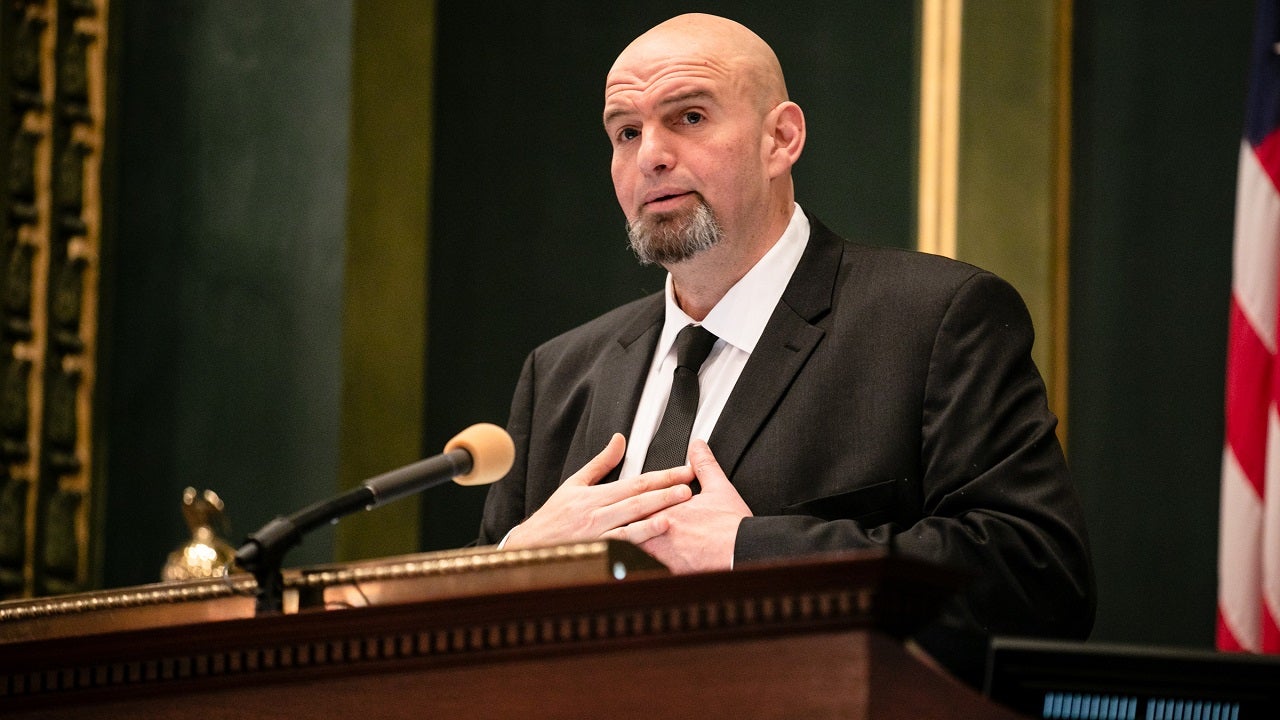Senator John Fetterman Defends Trump Voters: “They’re Not Fascists, They’re Not Nazis”
In a time of heightened political polarization, Senator John Fetterman (D-PA) has emerged as a voice of empathy and reason, challenging the toxic rhetoric that often dominates public discourse. During a recent interview, Fetterman made a striking statement that has resonated widely: “I’m the only Democrat in my family. I grew up in a conservative part of Pennsylvania… I know and love people that voted for President Trump, but they’re not fascist. They’re not Nazis. They’re not trying to destroy the Constitution.” His words, grounded in personal experience, offer a refreshing call for understanding, urging Americans to see beyond labels and recognize the humanity in those with differing political views.
Fetterman’s unique perspective stems from his upbringing in York, Pennsylvania, a predominantly conservative region where Republican values have long held sway. As the sole Democrat in his family, he navigated ideological differences from an early age, learning to engage with loved ones who held contrasting beliefs. This background informs his approach to politics, which emphasizes connection over division. In an era where political opponents are often demonized, Fetterman’s remarks challenge the narrative that paints Trump voters as extremists bent on undermining democracy. Instead, he portrays them as everyday people—neighbors, friends, and family—with genuine concerns and values.

The senator’s statement comes at a critical moment. Political rhetoric has grown increasingly inflammatory, with terms like “fascist” and “Nazi” thrown around casually to describe entire voting blocs. Such language, Fetterman argues, not only misrepresents millions of Americans but also deepens the divide that threatens civil discourse. “I know these people,” he said, referring to Trump supporters in his community. “They’re working-class folks, worried about jobs, their kids’ future, and making ends meet. They’re not out to destroy anything—they’re trying to build a better life.” His words resonate with many who feel that political elites often misunderstand or dismiss the motivations of rural and working-class voters.
Fetterman’s comments have sparked both praise and criticism. Supporters applaud his willingness to humanize Trump voters, seeing it as a step toward healing a fractured nation. “Fetterman gets it,” one X user posted. “He’s not afraid to call out the nonsense on his own side while still standing up for what he believes.” Others, however, argue that his remarks risk downplaying the impact of extreme rhetoric within certain political circles. Critics contend that while not all Trump voters are extremists, some of the former president’s policies and rhetoric have emboldened dangerous ideologies. Fetterman, they argue, must tread carefully to avoid appearing dismissive of those concerns.
Despite the backlash, Fetterman’s approach aligns with his broader political philosophy. Since taking office in 2023, he has positioned himself as a bridge-builder, advocating for progressive policies like workers’ rights and healthcare reform while maintaining an open dialogue with conservatives. His authenticity—rooted in his working-class background and unpolished demeanor—has made him a relatable figure in Pennsylvania, a swing state where understanding both sides is crucial. “I don’t agree with them on everything,” he said of Trump voters, “but I know they’re not the caricatures people make them out to be.”

The senator’s remarks also highlight a broader issue: the growing disconnect between political elites and everyday Americans. Data from a 2024 Pew Research Center survey shows that 62% of Americans believe politicians do not understand the challenges faced by ordinary people. Fetterman’s ability to speak from personal experience—knowing and loving Trump voters in his own family—lends credibility to his call for empathy. By rejecting inflammatory labels, he challenges both parties to focus on policy over hyperbole.
As the 2026 midterms approach, Fetterman’s message could resonate with voters tired of partisan vitriol. His willingness to defend the character of Trump voters while maintaining his Democratic principles offers a model for navigating America’s divided landscape. In a nation grappling with distrust and division, Fetterman’s words remind us that understanding and compassion can still find a place in politics. “They’re not my enemies,” he said of Trump voters. “They’re my people.”





